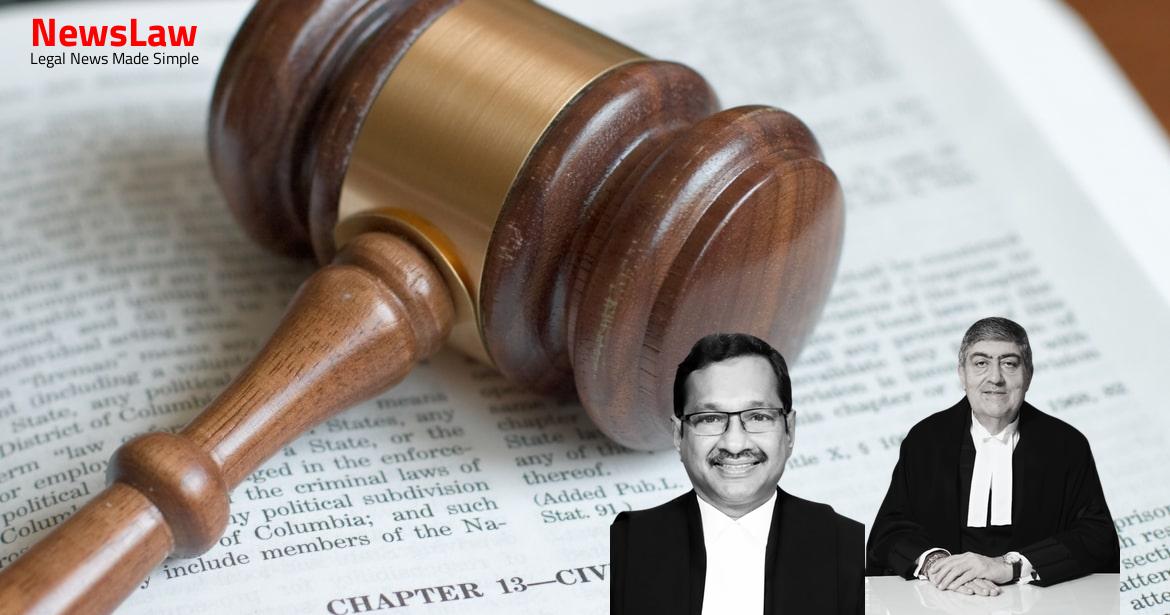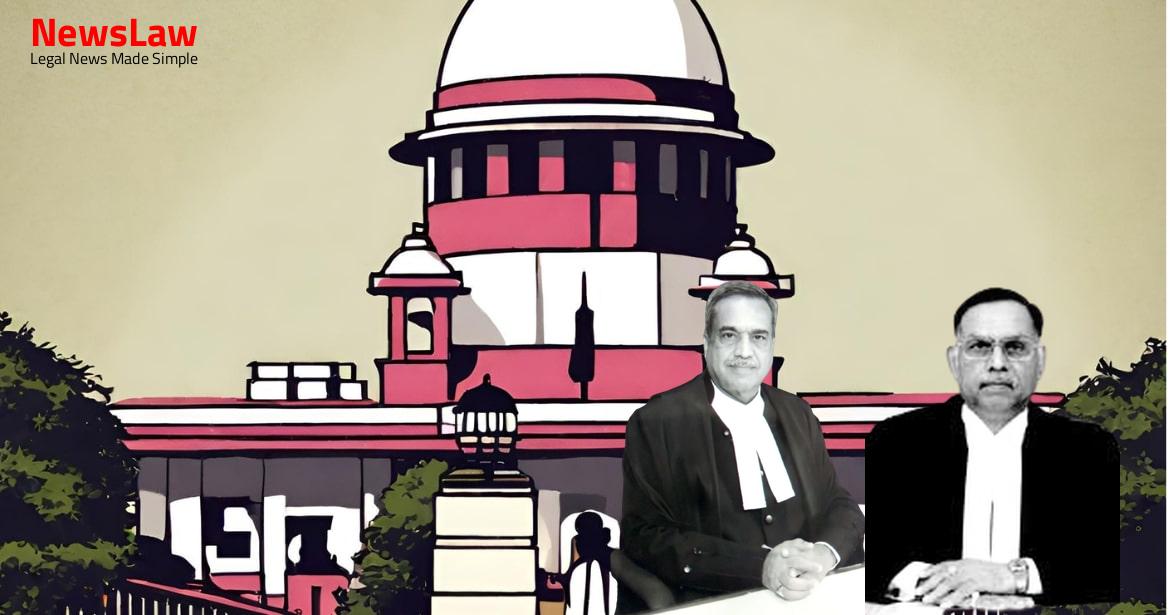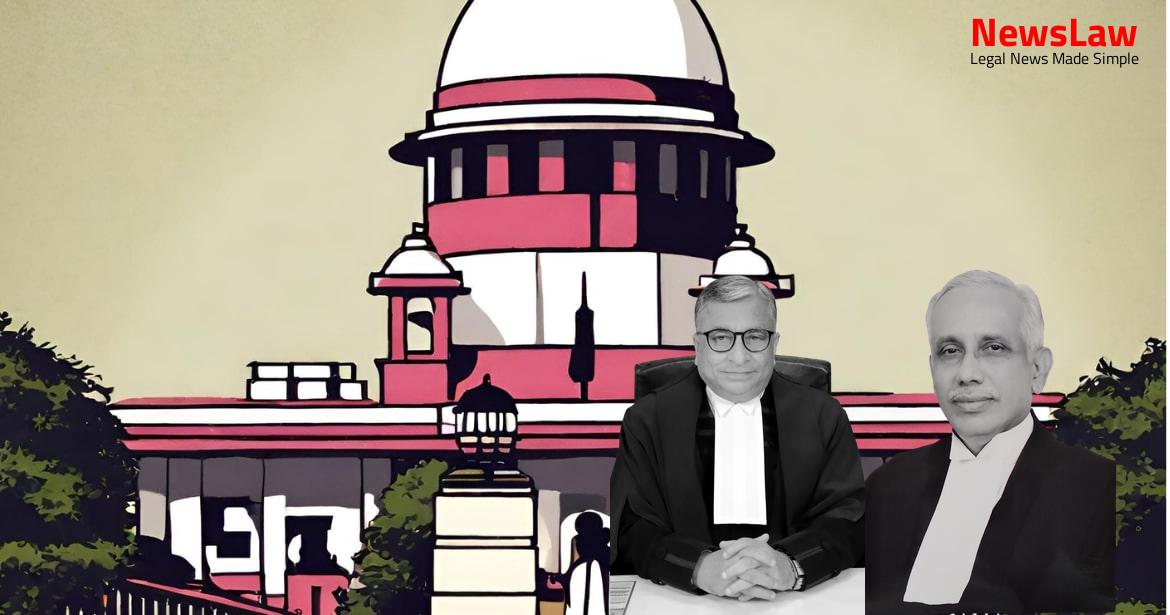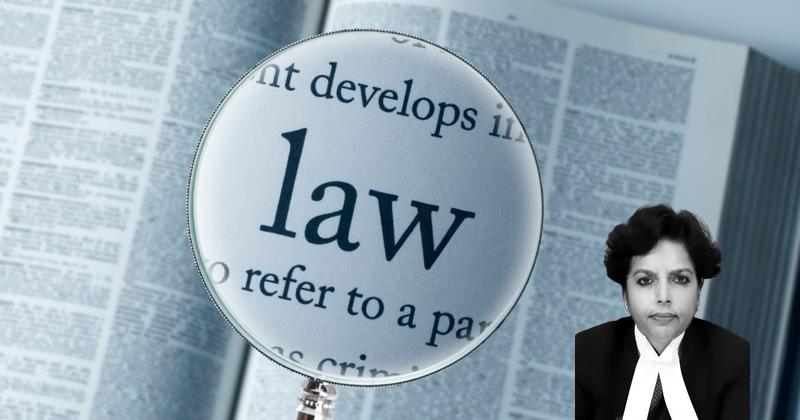Explore the in-depth legal analysis of alibi claims and the burden of proof in a recent court case. The court’s meticulous examination of evidence, witness testimonies, and the crucial aspects of establishing an alibi will be discussed. Follow along to gain valuable insights into the complexities of legal proceedings.
Facts
- Review petition filed by Pappu Tiwari on 22.01.2021, with an application for bail.
- Identification of Kanchan Yadav as the individual who helped Law Tiwari.
- Formal FIR registered in PS case No.6/2000 under Section 364, 365, and 120B of the IPC.
- Law Tiwari convicted under Section 365 of the IPC on 28.02.2000 for kidnapping for purposes of murder.
- Law Tiwari released on 28.09.2016 after serving his sentence.
- Law Tiwari acquitted on 17.12.2005, as per the appeal filed against the conviction.
- Two witnesses examined on defense’s prayer during the trial – Almuddin Khan (CW-1) and Akshay Kumar Mahto (CW-2).
- Description of the incident involving Pappu Tiwari and other accused attacking Vikas Kumar Singh.
- FIR registered against six accused persons including Law Tiwari under Sections 302 and 34 of the IPC, and Section 27 of the Arms Act.
- Arguments presented regarding Law Tiwari’s alleged participation in the crime and his defense of having a fractured leg at the time of the incident.
- Details of post-mortem by Dr. Mahesh Prasad Singh indicating the cause of death.
- Background of the incident dated 07.03.2000 involving Vikas Kumar Singh.
- Dismissal of restoration application due to delay on 07.03.2017.
- Arrest dates of the accused including Law Tiwari on 16.03.2000.
- Bail application of Pappu Tiwari dismissed on 04.10.2021 with a direction for the appeal hearing.
- Chargesheet filed against all six persons involved in the case.
- Sessions Trial No.159/2001 details including witnesses and charges against accused.
- Recovery of Maruti van linked to the incident on 09.03.2000.
- Pintu Tiwari was found to be a minor on the date of the incident and hence could not be detained further under the Juvenile Justice Act.
- Sanjay Ram and Uday Pal accepted the High Court judgment.
- Three appellants, including Pappu Tiwari, further pursued the matter to the Supreme Court.
- Pappu Tiwari’s Special Leave Petition seeking exemption from surrender was dismissed by the Supreme Court.
- Pappu Tiwari was granted multiple extensions to surrender but failed to do so, resulting in the dismissal of the Special Leave Petition.
- All the accused were convicted and sentenced in accordance with the trial court’s judgment.
- Pappu Tiwari was additionally sentenced to three years of rigorous imprisonment under the Arms Act.
- Law Tiwari and Pintu Tiwari filed one appeal, while the remaining convicts filed another appeal, both challenging the trial court’s judgment.
- The High Court of Jharkhand affirmed the trial court’s judgment against all six convicts, sentencing them to undergo imprisonment for life.
Also Read: Supreme Court Judgment on Single Till Mechanism for HRAB Calculation: A Comprehensive Analysis
Arguments
- The post-mortem report is expected to contain details of injuries through a scientific examination.
- The appellant argued that the police officer who prepared the inquest panchnama is not an expert in medical jurisprudence, which is a basic principle of criminal jurisprudence.
- The appellant was found absconding multiple times before being arrested and taken on remand.
- The counsel for the State mentioned the testimonies of eye witnesses and the medical officer to support the prosecution’s case.
- Differences in versions and timing related to the case were pointed out.
- The argument was made about the conduct of the accused during custody and threats extended to the informant.
- It was emphasized that the doctor conducting the post-mortem examination views the body from a medico-legal perspective, different from an inquest report.
- Antecedents of the accused were mentioned, which the High Court was alleged to have erroneously considered against statutory provisions.
- A discrepancy was noted in the expert opinion on the distance from which the firearm was used.
- Case No. 107/2001 was registered at the Garhwa Police Station in connection with the incident.
- Problems were raised about the uncertainties regarding the firearm and ammunition used in the incident.
- Despite efforts, the counsel for the appellant could not cast doubt on the trial court and High Court’s judgment.
- The importance of establishing an alibi was emphasized for the accused.
- Discussion on the defence witnesses and the medical treatment provided to the accused.
- The absence of evidence supporting claims of ante timing the FIR was refuted.
- Discrepancies between the inquest report and the post-mortem report were discussed.
- Arguments were made about the inquest report not being substantive evidence in itself.
- Judicial viewpoints on inquest reports and limitations were referenced.
- Alibis and independent witnesses were mentioned as part of the remaining arguments.
- The plea of defective investigation and absence of independent witnesses was raised by the appellant.
- The need to prove the case beyond reasonable doubt without nitpicking for acquittal was highlighted.
- The sequence of events after the firearm injury and subsequent assaults by other accused was recounted.
- Evaluation of the alibi plea and the burden on the accused to disprove it were discussed.
- The incident occurred at 1300 hours on 07.03.2000.
- At 1343 hours, a telephone call from the hospital reported that the injured had arrived at the hospital.
- The time of recording of the fardbeyan is 1400 hours.
Analysis
- The accused’s evidence for the plea of alibi is sketchy and does not seem reasonable.
- There is no absolute certainty in proving the accused’s absence at the place of occurrence.
- The quality of evidence provided by the accused does not create a reasonable doubt in the Court’s mind.
- The burden of proving the plea of alibi lies heavily on the accused, requiring certitude in establishing it.
- In Jitender Kumar v. State of Haryana, the burden of establishing the plea of alibi was emphasized, and the appellants failed to provide evidence to support their plea.
- The FIR was recorded promptly after the incident and the body was sent for post-mortem immediately.
- There were discrepancies in recording the number of injuries suffered by the deceased in the inquest report and post-mortem report.
- The plea of alibi was not proven conclusively by Law Tiwari, leading to rejection by the trial court and High Court.
- Dr. M.P. Singh, a crucial witness, was not produced by the defence.
- Some confusion regarding witness identities and testimonies in the trial court’s judgment.
- The importance of timely registration of FIR and conducting investigations swiftly was highlighted.
- The testimony of the informant, a close relative, was considered significant despite being biased.
- The High Court did not rely on the testimony of an eye witness due to a substantial delay in examination.
Also Read: Selection and Appointment of Judicial Officers in Himachal Pradesh
Case Title: PAPPU TIWARY Vs. STATE OF JHARKHAND (2022 INSC 118)
Case Number: Crl.A. No.-001492-001492 / 2021



